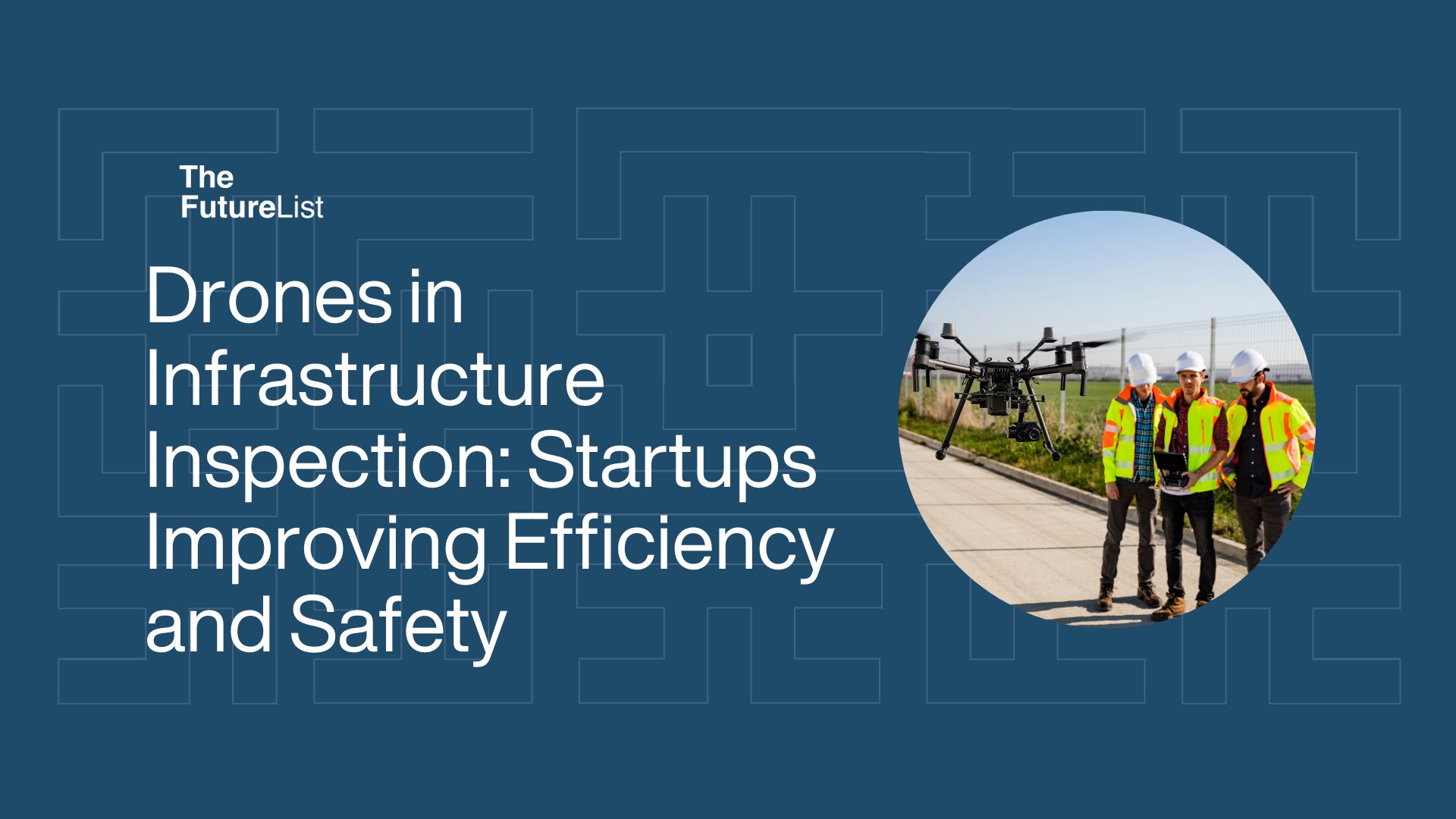
Drones in Infrastructure Inspection: Startups Improving Efficiency and Safety
Drone technology has allowed new entrepreneurs to revolutionise the field of infrastructure inspection in recent years. These businesses are using the agility and accuracy that unmanned aerial vehicles provide to revolutionise conventional inspection procedures. These firms are facilitating thorough and efficient evaluations of vital infrastructure, like electricity lines, pipelines, and bridges, by utilising drones that are outfitted with sophisticated sensors and imaging capabilities. They provide previously unattainable insights into the state of these assets through real-time data collection and analysis, enabling preventative maintenance and reducing downtime. By eliminating the need for expensive scaffolding or manned planes to conduct thorough inspections and access difficult-to-reach locations, these entrepreneurs are not only raising safety standards but also significantly reducing costs for businesses throughout the globe.
The use of drones for inspection and monitoring is growing in popularity as the necessity for robots to do risky and potentially fatal duties increases. Drones are being used more and more by industries as part of their maintenance procedures for monitoring and inspection. To ensure that an organisation’s resources are being properly maintained, a visual inspection is needed. The size of the global drone inspection and monitoring market is projected to grow at a 14.5% CAGR from 2022 to 2032, to reach USD 39.8 billion.
This week, we spotlight four companies that are driving innovation in the sector:
FalconViz:
FalconViz is a company based in the King Abdullah University of Science and Technology Research Park in Saudi Arabia, specialising in providing end-to-end asset digitisation and process digitalisation services using UAVs and related equipment. They offer comprehensive digital solutions to help clients address specific challenges in their projects and daily operations. FalconViz serves various industries such as oil and gas, construction, media production, transportation, and more, utilising technology supported by government initiatives for digital transformation and industry 4.0 applications.
SKYX:
SkyX is a Canadian-based company that specialises in providing infrastructure asset companies with ongoing, actionable, long-range aerial data to support a proactive approach to asset integrity. Their drones collect data in various climates, which is then analysed using their purpose-built SkyVision software to identify anomalies. SkyX offers solutions for monitoring pipeline right of way, identifying unauthorised activity, analysing hydrocarbon leaks, and evaluating pipeline corrosion remotely.
Superwake:
Superwake. is a company based in Toronto, Ontario, Canada, specialising in providing innovative aerial intelligence solutions using a network of multi-day endurance solar-electric drones. Their services include wildlife surveying and forest mapping, utilising drones equipped with various cameras and payloads to capture reliable and accurate data over large areas.
Flyability:
Flyability is a Swiss-based company that specialises in the development of drones for the inspection and mapping of challenging indoor environments. Their flagship product, Elios 3, is designed to digitise inaccessible spaces, providing high-precision LiDAR data and precise radiation sensing capabilities.
To sum up, the advent of companies utilising drone technology signifies a noteworthy shift in the methods employed for infrastructure inspection. These forward-thinking businesses are upending conventional practices by providing more accurate, economical, and efficient solutions. Drones with sophisticated sensors and imaging capabilities are being deployed, giving the industry unprecedented access to real-time data, enabling preventive maintenance, and reducing operational disturbances. Furthermore, they are priceless resources for raising safety standards because they may enter hazardous or isolated areas without endangering human lives. These firms have the potential to significantly impact how infrastructure is inspected and maintained in the future as they continue to improve their technology and broaden their capabilities.
Get innovation insights from The FutureList weekly. Subscribe to our newsletter here
Categories
- Agritech
- Artificial Intelligence
- Biotech
- Blockchain
- Climate Tech
- Data Infrastructure
- Edtech
- Events
- Fashion
- Fintech
- Healthtech
- Infrastructure
- Innovation Memos
- Innovation Scout Program
- Insight
- Insurtech
- Machine Learning
- Martech
- Mobility
- Procurement
- Proptech
- Ridehailing
- Ridesharing
- Space Aviation
- Supply Chain
- Talent
- Telecoms
- Venture Capital
- Wastetech
- Women In Tech